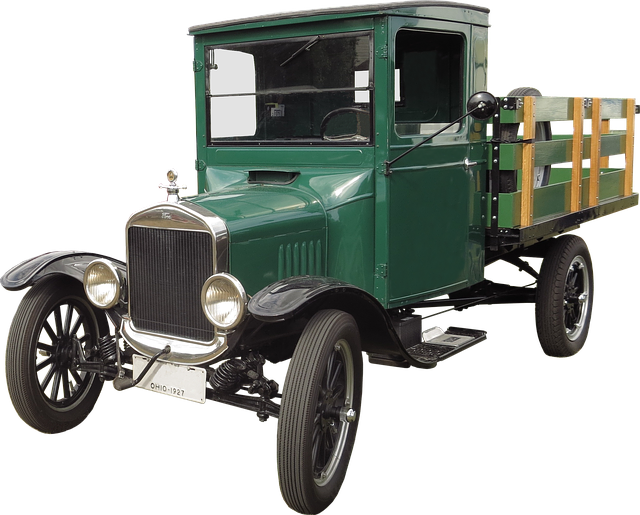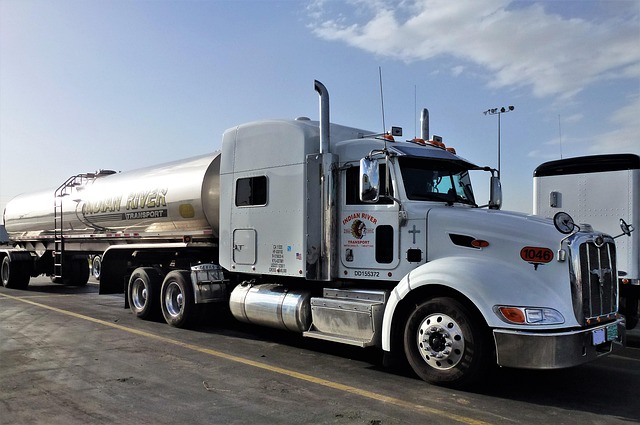When launching a trucking operation, tailor your insurance to your fleet's unique risks. Small fleets may focus on budget-friendly liability insurance for accident protection, while larger operations require comprehensive cargo and physical damage coverage. Balancing these policies allows startups to create a customized, cost-effective insurance plan that aligns with their specific needs, fostering growth and peace of mind by effectively managing unforeseen events.
Introducing our guide on navigating the complex landscape of trucking insurance for new businesses. As your fleet grows, so do your insurance needs. Understanding the unique risks associated with your new fleet is crucial. This article explores essential aspects like recognizing your startup’s specific insurance requirements, the role of liability insurance in protecting young ventures, and uncovering comprehensive coverage options that offer peace of mind without breaking the bank. We provide strategies to balance cost and protection, ensuring your small business remains resilient on the open road.
Understanding Your New Fleet's Unique Insurance Needs

When starting a new trucking operation, understanding your fleet’s unique needs is crucial for navigating the complex world of insurance. Every business is different, and so are the risks they face. For instance, a startup with a small fleet might prioritize affordable liability insurance to cover potential accidents or claims, ensuring their financial stability in case of unforeseen events. On the other hand, larger operations may require comprehensive cargo coverage to protect valuable shipments during transit.
Comprehensive protection means balancing various types of insurance policies, including physical damage insurance for vehicles, cargo insurance for the goods being transported, and liability insurance to safeguard against claims related to accidents or property damage. By evaluating the specific risks associated with your fleet’s operations, you can tailor a trucking insurance plan that offers both sufficient coverage and cost-effectiveness, catering to the unique needs of your new business.
The Role of Liability Insurance in Protecting Startups

For new businesses venturing into trucking and fleet management, securing comprehensive insurance is a cornerstone of risk mitigation and protection. Among the various types of coverage, liability insurance plays a pivotal role in safeguarding startups from potential financial disasters. This type of insurance shields business owners from legal costs and damages arising from accidents involving their vehicles or cargo. In the event of a claim, liability insurance covers medical expenses, legal fees, and any compensatory payments mandated by court orders.
When choosing trucking insurance for new businesses, it’s crucial to find an affordable option that includes adequate liability coverage alongside other essential protections like physical damage insurance. This ensures that should an incident occur, the startup’s financial health is preserved, enabling them to weather unexpected expenses without succumbing to insurmountable debt. With the right blend of coverage, small business truck owners can navigate the road ahead with peace of mind, knowing their investment and operations are shielded from unforeseen circumstances.
Comprehensive Coverage Options for Peace of Mind

For a new trucking business, ensuring comprehensive protection is paramount to fostering growth and mitigating risks. Comprehensive insurance packages go beyond basic liability coverage, offering a safety net against various unforeseen circumstances that can affect your fleet. These options include cargo coverage, protecting your valuable freight from damage or loss during transit, which is crucial for maintaining client trust and satisfaction. Physical damage insurance is another essential component, safeguarding your trucks from perils such as accidents, natural disasters, or vandalism, ensuring your investment remains secure.
Startup trucking businesses can find suitable solutions without compromising on coverage. Affordable trucking insurance plans tailored to new operations exist, offering liability insurance for startups to protect against claims arising from accidents or incidents involving your vehicles. By exploring these comprehensive coverage options, new fleet owners can gain peace of mind, knowing they are prepared for potential challenges while keeping costs manageable.
Balancing Cost and Protection: Strategies for New Businesses

Balancing cost and comprehensive protection is a key challenge for new trucking businesses looking to get their fleet on the road safely and affordably. With significant upfront investment in vehicles, equipment, and drivers, managing insurance expenses while ensuring adequate coverage can feel like a tightrope walk. However, strategic planning and smart choices can help new operators navigate this delicate balance.
Focusing on key areas like liability insurance is crucial for protecting against potential accidents and legal claims, while cargo coverage safeguards the value of goods in transit. Physical damage insurance offers peace of mind by covering repairs or replacements due to accidents or natural disasters. New businesses can leverage their size and lack of history to their advantage, often securing better rates through specialized trucking insurers who cater to startups. Additionally, opting for a comprehensive package that bundles multiple coverages can simplify policies and potentially reduce overall costs.
When balancing cost with comprehensive protection for a new fleet, new businesses must prioritize their unique insurance needs. By understanding the role of liability insurance in protecting startups and exploring various coverage options like physical damage insurance and cargo coverage, entrepreneurs can find peace of mind without breaking the bank. Strategies such as bundling policies and comparing quotes from multiple providers enable new business owners to secure affordable trucking insurance that aligns with their fleet’s specific requirements, ensuring both financial protection and operational efficiency.
